Tags: Great barrier reef
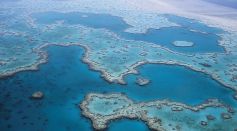
Groundwater Discharge of Hidden Nutrient Source Imperiling Great Barrier Reef's Health
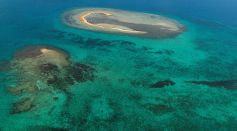
Massive Coral Bleaching Due to Climate Change Makes It Harder for Reef Fish To Identify Competitors, Study Finds

Why UN Thinks the Great Barrier Reef Should Be Included in the World Heritage "In Danger" List

Rare Jellyfish Filmed Off the Coast of Papua New Guinea Could Be a New Species

Scientists On the Verge of Finding Beneficial Supplements for Coral Reefs That Might Improve Conservation

Fish Communities in the Great Barrier Reef Losing Colors Due to Complex Coral Reefs Decline, Study Reveals
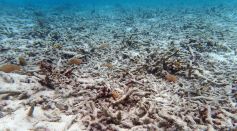
Corals Still Wiped Out Even If Paris Agreement Successful

Rare Sighting of Blanket Octopus With Rainbow Hues Captured in the Great Barrier Reef
Scientists Witness the ‘Best Coral Spawning Event’ on the Great Barrier Reef, Hope for ‘Recovery and Repair’ in Marine Organisms

Artificial Clouds That Can Cover The Great Barrier Reef from Extreme Heat Developed; How Does It Work?
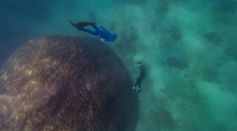
Largest Coral 'Muga dhambi' Discovered in Goolboodi, Great Barrier Reef
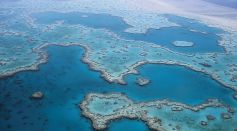
Saving Coastline Fortresses: Probiotics Boost Coral Health; Bacteria Prevent Mortality From Heat Stress
Marine Biologists Develop Heat-Resistant Coral to Save Great Barrier Reef

The Failing Health of the Great Barrier Reef
Researchers Use AUVs to Control Crown-of-Thorns Population in the Great Barrier Reef
Saving Koalas, Forest Wars, and Net Zero Targets: The Environmental Problems Australia is Facing
Stanford Reseachers Identify Coral Gene Associated with Heat Tolerance
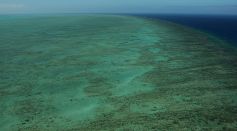
The Great Barrier Reef Has Declined By Half, New Study Shows
Probiotic Bacteria Like Those Found in Yoghurt Can Boost Coral Health in the Great Barrier Reef: Study
Must Watch: Drone Captures About 64,000 Turtles Bobbing About at the Great Barrier Reef
Most Popular

Ocean Acidification, Marine pH Change, and CO2 Absorption: How Coral Reef Damage and Shellfish and Plankton Impacts Threaten Marine Life

Dark Matter Explained: What We Know, What We Don't, and How It Shapes Cosmic Structure

Memory and Learning: How the Brain Stores, Retrieves, and Forgets Information

Solar Storm Risks: How Geomagnetic Storms Threaten Earth's Power Grids and Satellites




